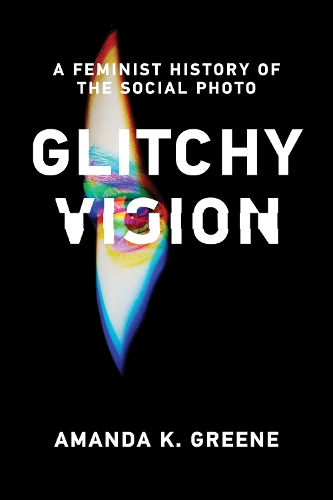
Glitchy Vision: A Feminist History of the Social Photo
(Paperback)
Publishing Details
Glitchy Vision: A Feminist History of the Social Photo
By (Author) Amanda K. Greene
MIT Press Ltd
MIT Press
17th December 2024
United States
Classifications
General
Non Fiction
770
Physical Properties
Paperback
216
Width 152mm, Height 229mm
Description
A novel exploration of popular photographic media cultures in 1930s Europe through a feminist lens-and how visual social media changes what it means to be human both then and now. A novel exploration of popular photographic media cultures in 1930s Europe through a feminist lens-and how visual social media changes what it means to be human both then and now. Glitchy Vision takes a feminist approach to media history to examine how photographic social media cultures change human bodies and the experience of being human. Amanda Greene explains how change is not always revolutionary, but instead can occur on an everyday basis through the glitches new media introduce. To illuminate these glitches, Greene's media history centers the inevitable distortions that arise from looking at the past from the vantage point of the present. Treating these distortions as tools as opposed to obstacles, Greene uncovers new ways of viewing social media cultures of the past, while also revealing parallels between historical contexts and our contemporary digital media environment. Greene uses three "born-digital keywords"-real-time, algorithmic filters, and sousveillance-to examine photographic media environments in and around 1930s Europe. Each chapter of the book places one of the keywords in dialogue with an unconventional archive of popular "feminized" cultural artifacts and technological innovations from this historical moment that have been overlooked as critical resources for media studies- Evelyn Waugh's bestselling novel Vile Bodies (1930) and photographic reproductions for the tabloid press; Lee Miller's war photography for British Vogue and glamourous photo-retouching techniques; and, the Mass-Observation Movement's surrealist anthropology and compact rangefinder cameras like the Leica II. Glitchy Vision provides new strategies for reading history that illuminate how small shifts in the circuits that connect bodies and media affect what it means to be human both in the past and today.
Author Bio
Amanda K. Greene is an interdisciplinary researcher who studies how social media interacts with individuals' experiences of their bodies, illness, and health. Her research has been published in journals such as Body Image, Configurations, Feminist Media Studies, Feminist Theory, Qualitative Psychology, Social Media + Society, and The Journal of Health Communication.
